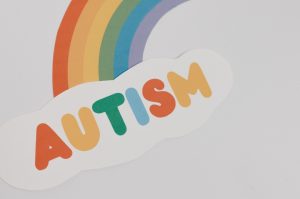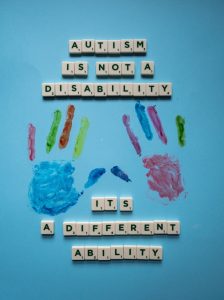What is Autism and how do you assess for it?
Autism is a neurodevelopmental difference that affects how a person sees, experiences, understands and responds to the world. Every person’s experience of autism is unique and diagnosing it can feel like piecing together a story. It’s important to consider various aspects of a person’s life, not just test results.
At ProMind we follow the ‘National Guidelines for the Assessment and Diagnosis of Autism Spectrum Disorder’ and use a mix of standardised and observational tools for a thorough assessment. Because every human being is different assessments are tailored to the individual needs of each person on the day. That can mean lots of movement breaks, craft activities, sensory play, more quiet time, or anything else that might be needed.
During an Autism assessment, our psychologist uses sensory materials, toys, social and play routines, and conversation topics to understand a person’s behaviour and communication. They look for specific traits and behaviours that match the criteria for Autism.

Signs of Autism
Autism diagnosis is based on diagnostic criteria in the Diagnostic and Statistical Manual of Mental Disorders (DSM-5-TR). as ongoing difficulties in social communication and interaction across different settings, along with restricted and repetitive behaviours, interests, or activities. Autism is a lifelong diagnosis. Some signs can appear in the first year of life, while others might show up later. While Autism can look very different for each person, there are some common signs. These can include:
Language and Communication
- Not responding to their name
- Difficulty interpreting and using nonverbal cues such as facial expressions and gestures
- Using eye contact less often and an ability to pay attention without making eye contact
- Difficulties with back-and-forth conversation
- Talking about areas of special interest more easily than other topics
- Use of repetitive questions and phrases
- “Sensory-driven” speech (a person seems to repeat details for their own benefit rather than sharing information for social interaction)
Social Relationships and emotional responses
- Needing more time alone than others their age
- Anxiety with peer interactions or in unstructured play
- Strong sense of right and wrong
- Difficulty regulating emotions (meltdowns, big behaviours, inflexibility)
- Difficulty expressing their emotions using words
Sensory behaviours
- Sensory sensitivities
- Sensory seeking behaviours
- Stimming behaviours such as repetitive body movements or repetitive noises
- Rigid play or conversational routines
- Particular diet
- Being clumsy or struggling with motor skills
Additional signs
- Family history of Autism
- Learning difficulties
- Loss of previously learnt skills
- Sleep difficulties
- Anxiety
- Depression
- Disordered eating
- Self-harming behaviours

Gender differences
Autism can also look different in males and females. Autistic females often go unnoticed due to autistic masking. This is where girls may mask their autistic traits by imitating other people when they’re socialising. This can be exhausting and lead to feelings of anxiety and depression in autistic girls. Females also have the tendency to focus on interests that blend in culturally – things like pop culture, dance, art, or animals. This cultural blending can make girls autism less obvious than those with more atypical interests. Autistic females may also only have one or two intense friendships and they might seem more possessive about those friendships. They are also more likely to experience bullying as they go through schooling than girls without Autism.
 How do I know whether to go ahead and get an assessment for autism?
How do I know whether to go ahead and get an assessment for autism?
If you have noticed signs of Autism it is important to connect with a healthcare professional. A team can help you understand your person’s challenges, provide support, and create a plan to help them thrive. To commence an Autism Assessment, best practice is to conduct them face to face. Therefore, we can only offer Autism Assessments in Adelaide.
The first step is visiting your GP, who can discuss it with you and possibly explore any medical issues. The doctor might refer on or recommend private assessment. Assessing for Autism means looking at all areas of a person’s wellbeing.
If you would like to discuss an Autism Assessment with us reach out via email [email protected] or phone (08) 81667566




